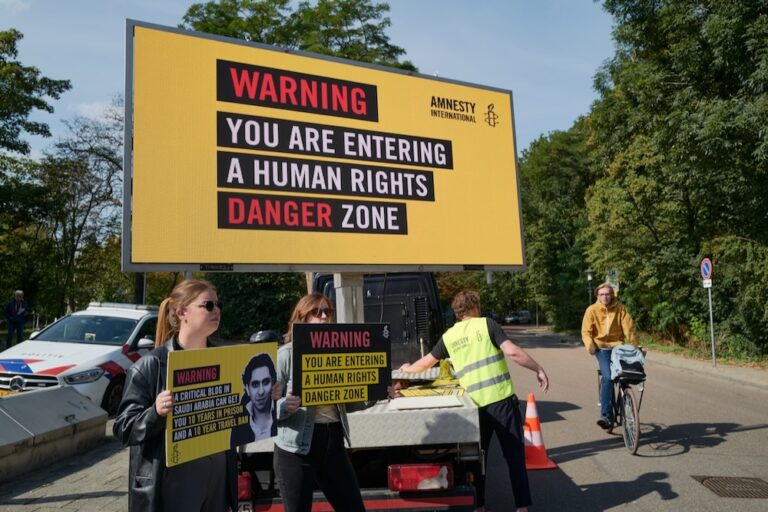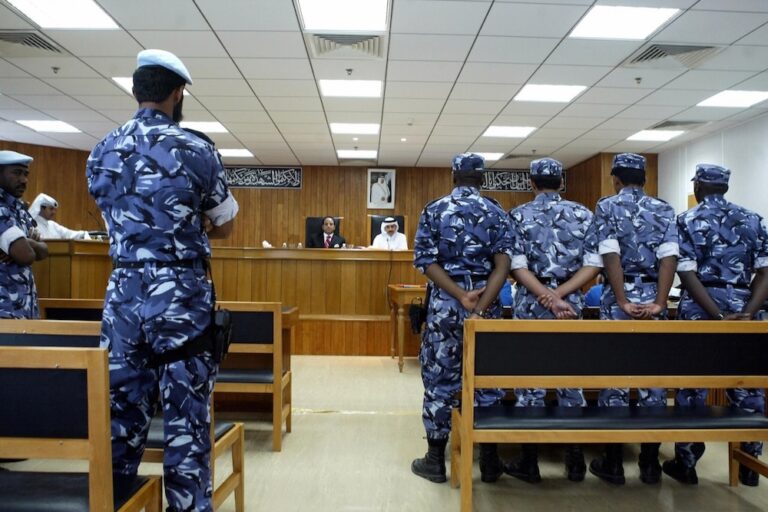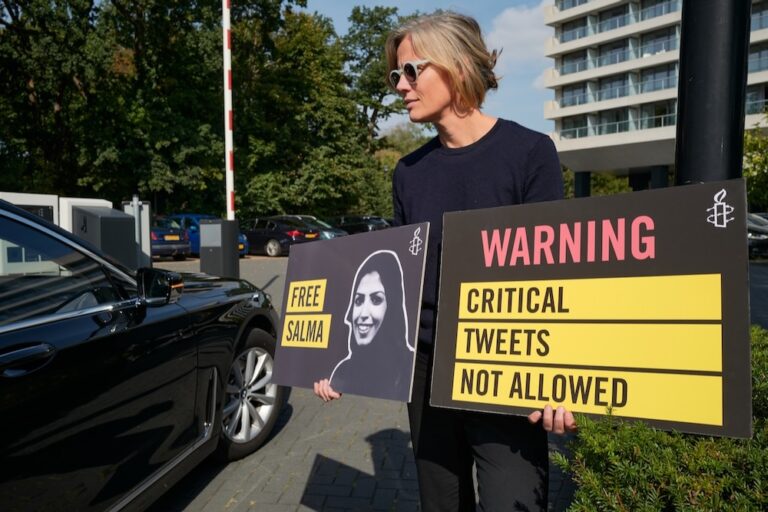A dual US and Saudi citizen has been detained for six months without charge after posting tweets criticising traditional interpretations of the sayings of the Prophet Muhammad.
(Human Rights Watch/IFEX) – October 31, 2012 – The Saudi authorities should immediately charge or release Mohammed Salama, a dual US and Saudi citizen detained without charge since April 2012, Human Rights Watch said today.
Intelligence forces arrested Salama at his home on April 30 after he posted several tweets criticizing interpretations of the sayings of the Prophet Muhammad, also known as the hadith, on his personal twitter account. Judiciary officials have neither publicly announced any charges against Salama nor suggested that he may be guilty of any commonly recognizable criminal offense. According to Salama’s family, there is no record of his detention or of any charges being brought against him.
“Neither Salama nor his family have been informed of any accusations against him,” said Joe Stork, deputy Middle East director at Human Rights Watch. “No one should languish in prison without charge, especially for expressing a peaceful opinion.”
Article 144 of the 2002 Saudi Law of Criminal Procedure places a six-month limit on the period that detainees can be held without charge, after which they must be charged or released. Salama will complete six months in detention without charge on October 30. His family said he was arrested by the General Presidency of the Kingdom of Saudi Arabia Intelligence. In September, his family contacted the Bureau of Investigation and Public Prosecution and was told that an investigation into Salama’s case was continuing.
In March, Salama published tweets questioning conventional interpretations of some passages of the hadith, and making comments about hadiths in online discussions. He stated that, “the Prophet himself questioned the Quran,” and that, “Thoughts of suicide are normal, because the Prophet himself contemplated it.” He also posted a video on YouTube criticizing a cleric for his political views. Unidentified online commentators subsequently called for his arrest and execution.
Another Saudi has been in custody for his tweets discussing religion since February 12. Saudi authorities arrested and detained Hamza Kashgari immediately after Malaysia extradited him, despite pleas by human rights organizations not to send him back to Saudi Arabia. Kashgari had posted messages on his Twitter account that top Saudi government clerics said constituted apostasy.
The Saudi law allowing six months of detention without charge is inconsistent with the Arab Charter on Human Rights, ratified by Saudi Arabia, which states in article 14(3) that “[a]nyone who is arrested shall be informed, at the time of arrest, in a language that he understands, of the reasons for his arrest and shall be promptly informed of any charges against him”. Article 14(5) of the Charter says, “Anyone arrested or detained on a criminal charge shall be brought promptly before a judge or other officer authorized by law to exercise judicial power and shall be entitled to trial within a reasonable time or to release. His release may be subject to guarantees to appear for trial. Pre-trial detention shall in no case be the general rule.”
“Salama’s case is a sad example of the way that Saudi authorities hold detainees for extended periods of time without charge and in violation of major human rights standards,” Stork said. “Authorities have shown no evidence that he did anything more than express his opinion peacefully. He should be released immediately.”


